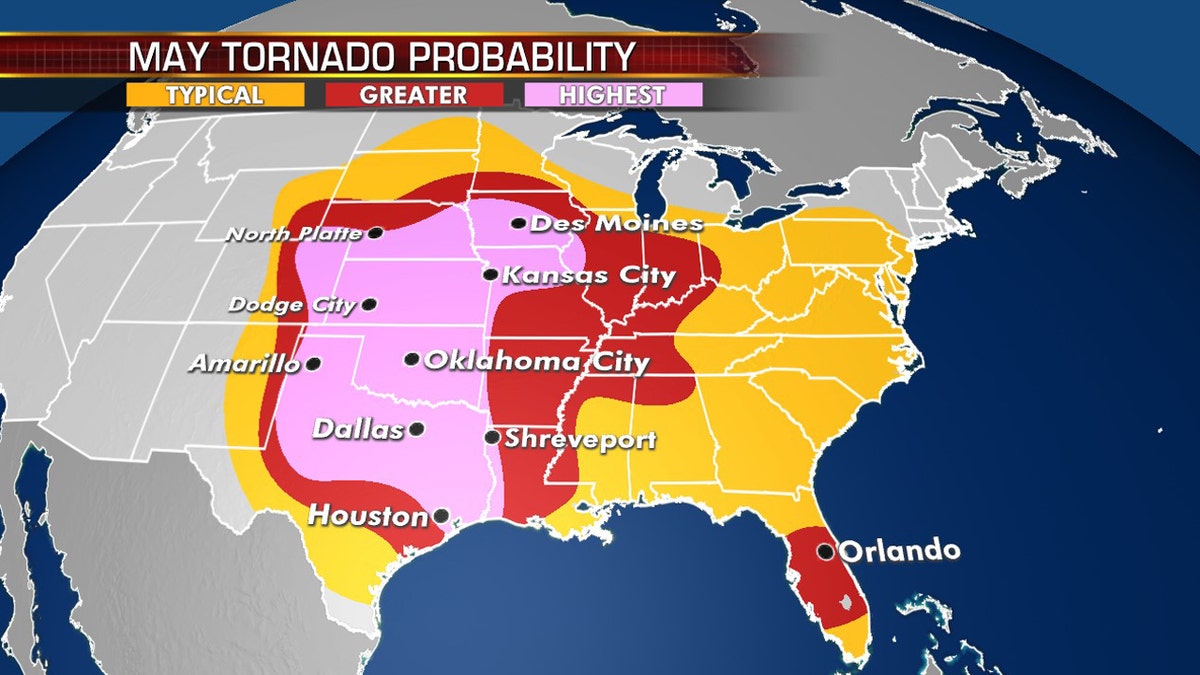How strong can tornadoes get? Here's a breakdown
Tornadoes can cause varying levels of destruction. Here’s what levels of intensity they can reach.
Get all the latest news on coronavirus and more delivered daily to your inbox. Sign up here.
Tornadoes can and do happen at any time of the year and in every U.S. state, but when the weather warms in the spring, the number of twisters typically begins to climb.
Most tornadoes occur when cold dry air from Canada collides with warm, moist air from the Gulf of Mexico.
During the late winter and early spring, that battleground of airmasses usually happens in the southeastern U.S.
WHERE DO TORNADOES HIT THE MOST IN THE US? HERE ARE THE TOP 5 STATES
Typical tornado outbreaks in February might be across Louisiana, Mississippi, Alabama, or Georgia.
In May, as the temperatures rise, the collision of that air moves north into the Plains states of the central U.S.

The most active areas for tornadoes in May are in the Plains. (Fox News)
The area that sees the most activity in May has popularly become known as "tornado alley."
During this period, most active areas are north Texas, Oklahoma, and Kansas.
WHAT WAS THE DEADLIEST TORNADO IN THE US? HERE ARE THE 10 WORST ON RECORD
From May to June, the Plains states are an ideal location for the formation of large supercell thunderstorms and tornadoes due to the combination of those weather factors.
By May, still very cold and dry air is now mixing with even warmer air over the vast flat landscapes of the Plains, allowing for some of the biggest and most frequent storms of the year.
Tornado season typically peaks in May when more than 250 twisters are reported.
CLICK HERE FOR MORE WEATHER COVERAGE FROM FOX NEWS
On average, around 1,200 tornadoes are reported in the U.S. every year, more than any country in the world.
Tornadoes kill about 60 people per year on average, mostly from flying or falling debris. But the actual number can vary from single digits to hundreds, according to the Storm Prediction Center (SPC).
Fox News' Travis Fedschun contributed to this report.










































